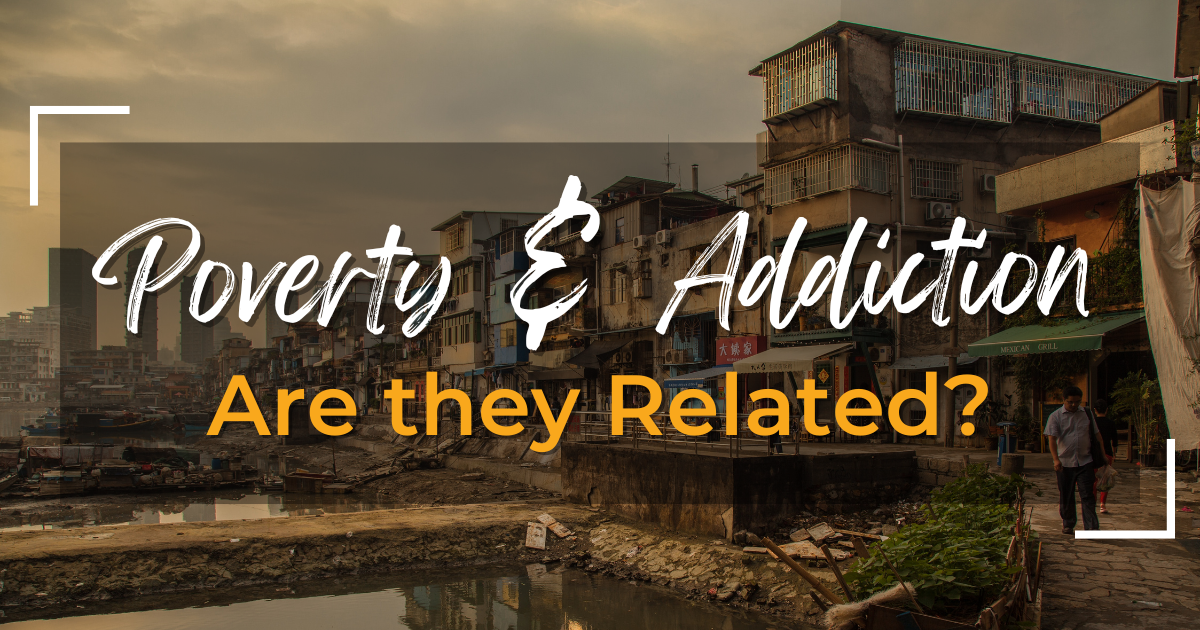Poverty and Addiction: Are They Related?
There’s a widely held assumption that those in poverty have higher odds of suffering from a substance use disorder than those who are wealthy. But is this really the case?
Landmark Recovery analyzed data to explore the relationship between poverty and addiction. Poverty is actually less of an issue today than it ever has been in human history. In the United States, the share of people living on less than $10 a day has dropped to 2.5%, with those living under $30 a day sitting at 18.5% as of 2019. Despite this, there is no direct correlation or causal relationship between poverty and addiction.
Insurance and Addiction
Poverty does make access to addiction treatment far more difficult. Many of those who lack insurance say that the high cost of policies is a deterring factor in having insurance. The effect of both healthcare regulation and nonregulation, depending on the kind of healthcare consumed, and the Affordable Care Act may also have an effect on the unaffordability of insurance coverage in the United States for some individuals and families due to rising premiums or other factors. This leads to citizens having less access to addiction treatment services if insurance is not an option or doesn’t adequately cover treatment.
Age Demographics and Addiction
Rates of addiction are most high among the youth between 18 and 25, but the rates drop dramatically once they pass the age of 25. This much is clear when looking at Substance Abuse and Mental Health Services Administration (SAMHSA) National Survey on Drug Use and Health (NSDUH) statistics. For those between 18 to 25, 24.4% of them have used an illicit drug in the last month, with 14.59% of those in that age bracket suffering from a substance use disorder. Many instances of individuals suffering from addiction end by the time individuals hit 30 years old unless they have access to a stable job or income. Factors like unemployment are shown to precede substance use much of the time.
Contra “Poverty Precedes Addiction”
Contrary to the point that low-income people develop addictions because they’re less wealthy, the exact opposite can happen to those who are middle class or upper class. Those who are middle-class may slip into addiction-related/caused poverty due to squandering any amassed wealth to fund their addiction.
There are other factors that can be used to predict the likelihood of someone developing a substance use disorder. According to the St. Joseph Institute for Addiction, there are five addiction risk factors that poverty increases: stress, feelings of hopelessness, decreased self-esteem, decreased social support, and decreased access to healthcare.
Regarding gender statistics, men actually suffer disproportionately compared to women in virtually every country with available alcohol use disorder statistics. In the US, Canada, and Australia, drug use disorders are more common compared to alcohol use disorders. Looking at geographic data, it may also be inferred that the prevalence of physically intense forms of labor in poverty-stricken areas, common in regions like Appalachia, correlates with geographically-plotted opioid use disorder rates.
Causal Relationship Not Possible to Establish
A causal relationship simply cannot be established between poverty and addiction, despite there being some statistical evidence that having a lower income makes you more at-risk for developing a substance use disorder through an increase in addiction risk factors. Most cases of addiction are likely purely genetic in origin, suggesting that there are other genetic traits that may also show a correlation with addiction in individuals. There is also no shortage of other statistical cross-sections that also show possible correlation with addiction rates, such as gender or age.
Learn More
Ultimately, addiction doesn’t discriminate. Everyone is at risk for developing a substance use disorder, and we here at Landmark Recovery want to change that in the United States. Our goal is to save a million lives in the next century, starting with those in our very own backyards. Our treatment centers are full of staff ready to help you begin your recovery journey. Give us a call at 888-448-0302 today, and we’ll put you in touch with a dedicated admissions specialist.

Choose Recovery Over Addiction
We're here 24/7 to help you get the care you need to live life on your terms, without drugs or alcohol. Talk to our recovery specialists today and learn about our integrated treatment programs.




